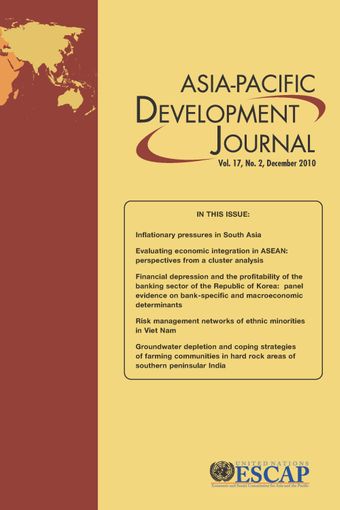-
Financial depression and the profitability of the banking sector of the Republic of Korea: panel evidence on bank-specific and macroeconomic determinants
- Source: Asia-Pacific Development Journal, Volume 17, Issue 2, Sep 2011, p. 65 - 92
-
- 06 Sep 2011
Abstract
The paper provides new empirical evidence on factors that determine the profitability of the banking sector of the Republic of Korea. The empirical findings indicate that the banks of the Republic of Korea with high capitalization levels tend to have higher profitability levels. However, the impact of credit is consistently negative under both controlled and uncontrolled macroeconomic and financial conditions. Meanwhile, the effect of the business cycle towards the profitability of banks are mixed. On the one hand, inflation displays a pro-cyclical impact, while gross domestic product (GDP) has a counter-cyclical influence on the banks’ profitability. The findings also indicate that the industry concentration of the national banking system has a positive as well as a significant effect on the banks. The study is based on data from the period 1994-2008. This period is broken down into 4 sub-periods, the tranquil period before the Asian financial crisis (1994-1996), the Asian financial crisis (1997-1998), the tranquil period between the Asian financial crisis and recent global financial crisis (1999-2008) and recent global crisis (2008). The impacts of both the Asian financial crisis and the recent global financial crisis are negative, while the banks have been relatively more profitable during both the tranquil periods.
© United Nations





